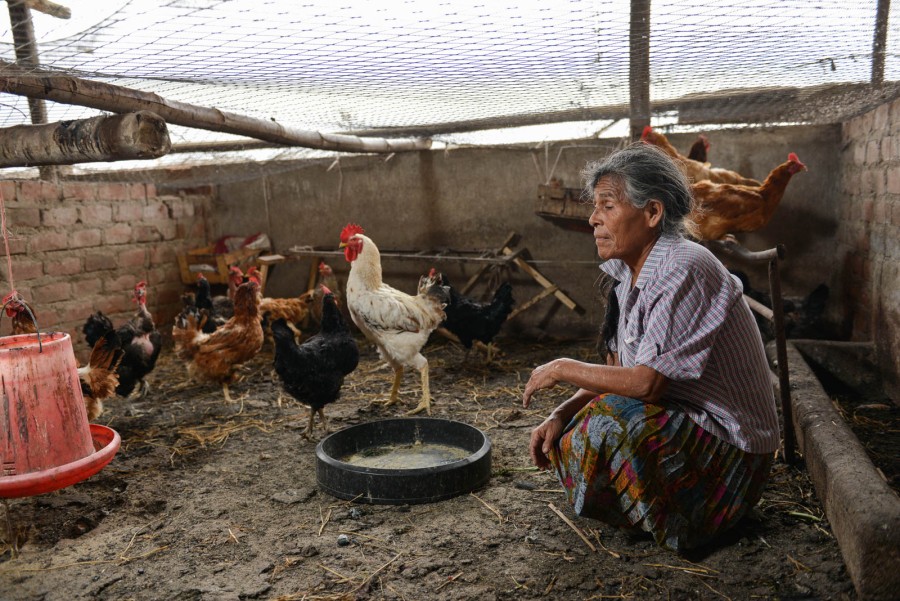With my chickens, I feel free
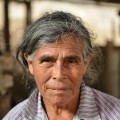 30 January | 2019
30 January | 2019 Last month, a group of Oikocredit investors, volunteers and staff spent a week in Peru for the 2018 study tour. One of the partners they visited was financial inclusion organisation ProEmpresa and its end-clients in Lima’s suburbs. Marion Wedegärtner from Oikocredit’s West German Support Association shared her impressions of the trip.
We started out by visiting Dimas Morales. She was the first in a line of impressive, strong-willed women we met during our study tour.
Lima, the capital city is located in the desert. As we head south-east, this becomes ever more apparent. “Every single bit of greenery that you see, everything that blossoms and blooms, has been planted and irrigated”, says Leila Loaiza, our translator. In the more affluent parts of Lima, palm trees and bright bushes grow behind walls and in gardens.
In the office of Oikocredit’s partner organisation ProEmpresa in Manchay, a neighbourhood one-and-a-half hour’s drive away from Lima’s upscale coastal suburb of Miraflores, a female employee has to constantly wipe the tables and floors to keep them free of dust (in Manchay the dust makes it difficult to see the contours of the houses and hills).
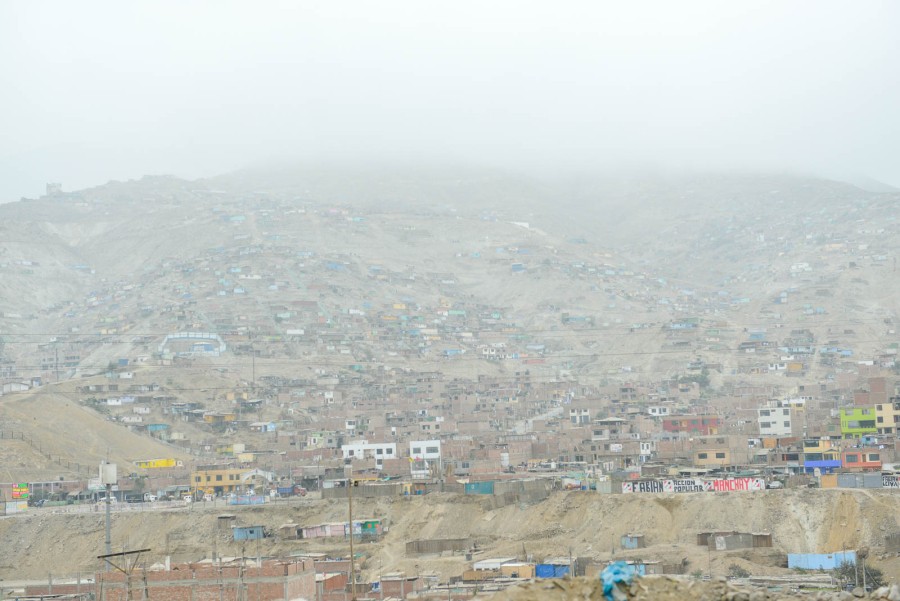
Continuing our journey, our route takes us on gravel roads with views reminiscent of so many other places around the globe: dirt tracks, simple dwellings resembling a permanent construction site, piles of rubbish regularly scoured for something usable, dogs roaming. Occasionally we see some greenery peeking through, or a Santa and his reindeer keeping watch at the door.
Seventy-five per cent of people living here are migrants. Eighty per cent have access to a water supply system: the rest have to buy drinking water from private companies who deliver by truck and fill the tanks.
Manchay’s population is spread across the surrounding hills. The area sees a continual influx of new arrivals: from the Amazon, down from the Andes, and from Venezuela, seeking out Lima’s better living conditions.
A few potholes further, quite high up in the hills, Dimas Morales is waiting for us. Owning 700 hens, a few proud roosters and a number of pigs, Dimas is a client of ProEmpresa.
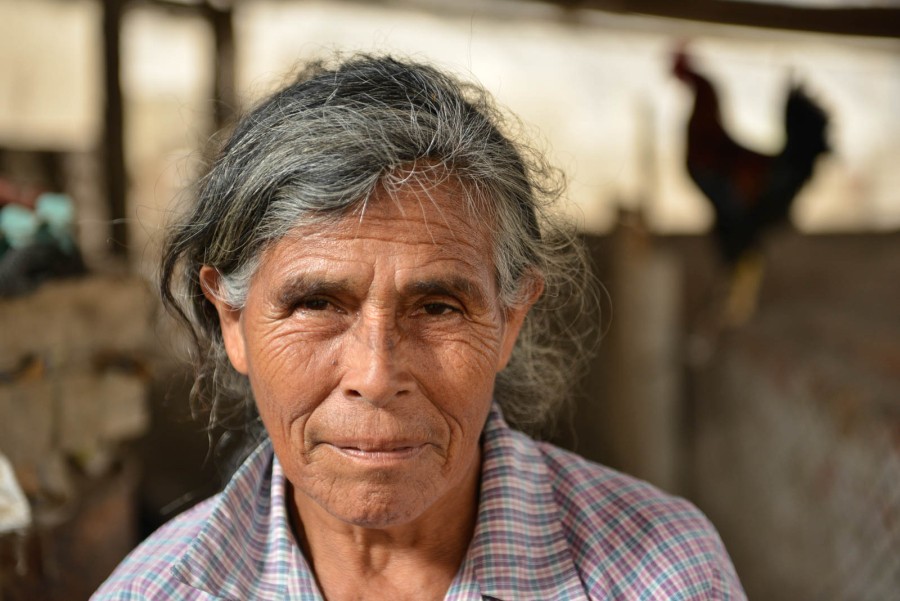
Strong statements by Dimas
She is small, agile, full of self-confidence, making one strong (and print-worthy) statement after the other.
- “Money doesn’t care how you look or how old you are.”
- “Ever since I was a child, I knew that I did not want to depend on a husband or a son. I’ve always looked after myself.”
- “When I am with my chickens, I feel free and at peace.”
- “Just imagine what I could have achieved if I had been able to continue my education.”
Good business sense
For 68-year old Dimas, leaving “la selva” (the jungle) five years ago to move to the outskirts of Lima was a business decision. Raising cattle in the jungle was costly, and yielded little profit. Two of her sons live in Lima; one is a nurse, and the other works in construction. Although both of them support their mother’s business, it remains hers. Hers alone, her work – this is very important to her, a fact she emphasises by placing her hand firmly on her chest.
When she arrived in Manchay, she took out loans to buy pigs. Pig breeding is expensive. It takes time until a pig can be sold at a profit. Until then, Dimas has to invest, invest and invest. In fact, it has not been easy for Dimas to repay. “But I don’t want to fall behind with my payments,” she says. As a consequence, Dimas switched to raising chickens and searched for a financial institution that could offer her what she needed. ProEmpresa was the answer.
Dimas is now on her fifth loan with ProEmpresa (4,000 Peruvian nuevos soles or approximately € 1,000). “Many other microfinance institutions find that providing any sort of service to customers up here is too difficult”, says Peter Mediano Gonzáles, Dimas’s loan officer, who drove up together with us.
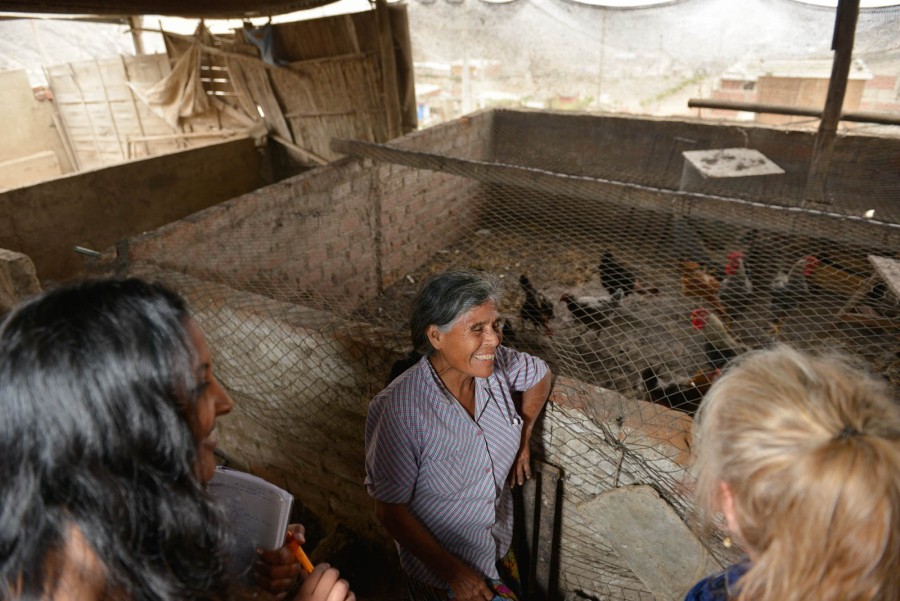
Innovative technologies
Dimas Morales keeps her hens for two-and-a-half years. At six months they lay their first eggs, and when they weigh seven kilos, she sells them. Dimas keeps various breeds of hens; she even brought one particular breed with her from the jungle.
Adding purple corn and cauliflower for example gives the eggs a special taste. Doing this enables Dimas to sell a kilo for 12 soles at the market, instead of the usual four soles.
We accompany Dimas part of the way down the hill, where we meet her husband, Teófanes Espinoza, in the second hen-house. We then descend further to her home, where two refrigerators stand in the yard. Dimas’s son Neider has converted them into incubators. “When my mother started with the chickens and the eggs, I was wondering how she could work more efficiently. The problem was that the traditional approach resulted in the chicks hatching at different times.”
Neider, a construction worker by trade, educated himself in one of Manchay’s many internet cafés, watching YouTube videos. Keeping in mind that “it mustn’t cost a lot”, he modified the old fridges, installing temperature gauges and a rotation system that simulates the hens’ behaviour (i.e. turning the eggs while sitting on them). A small “moto taxi” (tuk tuk) parked in front of the house serves as an emergency power generator. Everything works just fine.
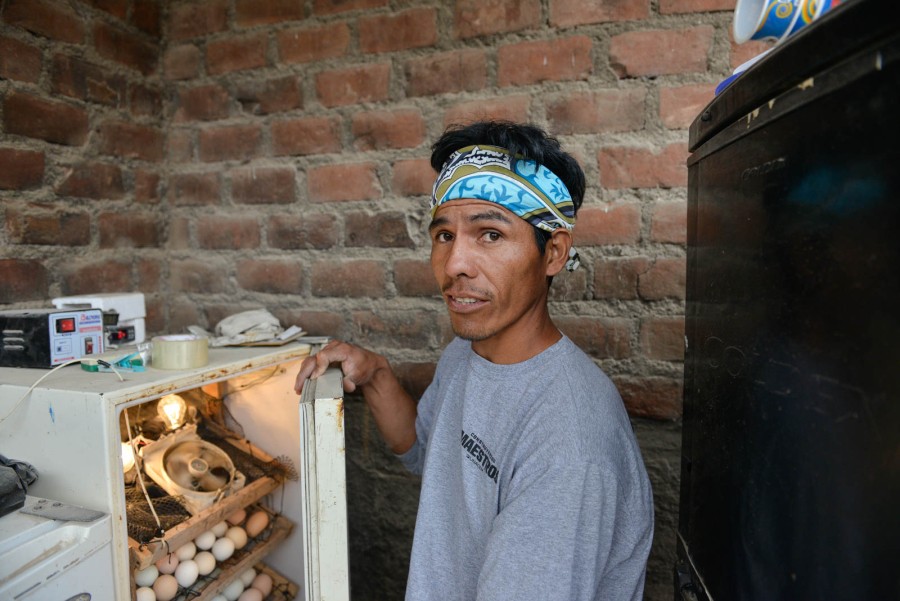
Visions of the future
According to Dimas Morales, “it’s not hard work.” Her farming tasks keep her busy three hours a day. She expects to be able to continue doing it for the rest of her life, along with her small coffee plantation in the jungle, where she works during the harvest.
What’s more, Dimas is actually planning to increase her operations to 5,000 hens. This is when Dimas tells us that she only went to school for two years, saying: “Just imagine what I could have achieved if I had continued my education.”
